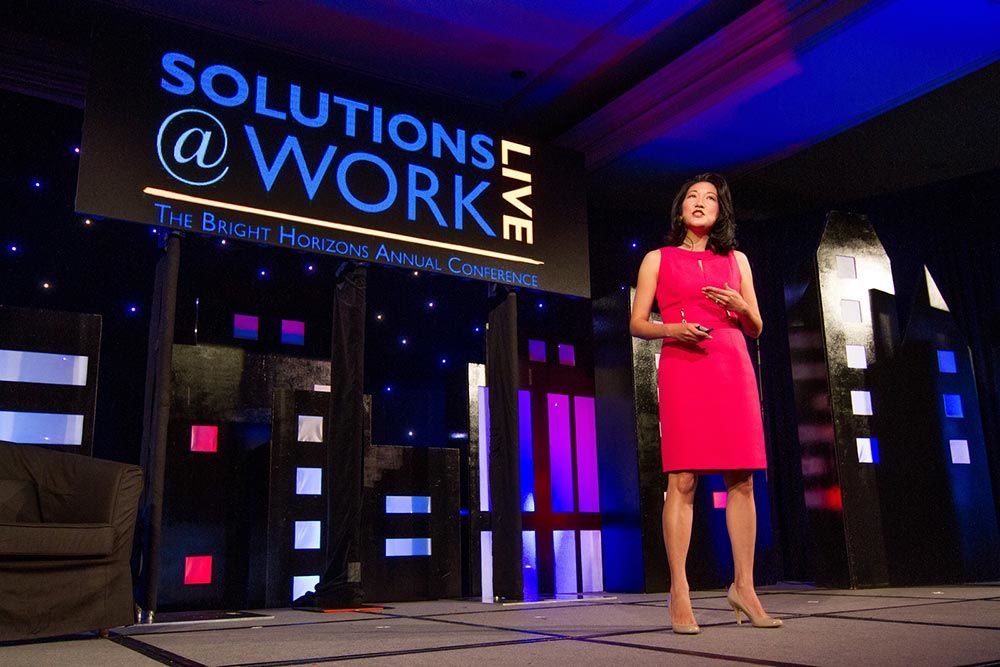Recently, we published an infographic called Family Means Fired.
It's based on data from our new Modern Family Index showing the startling fact that in 2014, nearly half of working parents fear their responsibilities for their children will get them fired from their jobs.
One journalist called the information "disturbing," asking, "What do employers fear when it comes to implementing family-friendly policies?"
There are any number of myths that prevent employers from creating family friendly policies. Let's break down some of those myths and the realities behind them.
It's based on data from our new Modern Family Index showing the startling fact that in 2014, nearly half of working parents fear their responsibilities for their children will get them fired from their jobs.
One journalist called the information "disturbing," asking, "What do employers fear when it comes to implementing family-friendly policies?"
What do Employers Fear About Family-Friendly Workplaces?
The answer is this: they believe family-friendly programs (child care, elder care, flex time e.g.) only support employees. But that's based on an outdated belief that positive business cultures have no benefits for businesses. But in 2014, we know that's not true. In fact, to be effective, the 21st-century workplace needs that supportive culture. "Our economy demands it," said President Obama at last month's White House Summit on Working Families, "because it's going to help us compete. It's going to help us lead."There are any number of myths that prevent employers from creating family friendly policies. Let's break down some of those myths and the realities behind them.
Myths and Realities of Family-Friendly Workplaces
Myth: Dependent-care supports only help employees, not companies.
Reality: This is the big myth. Several studies make clear that family friendly is not just good people policy - it's good business. Research conducted by Horizons Workforce Consulting shows that many working parents would decline a job offer to keep their employer-sponsored child care - even if a new job offered more money. Supported people also lose less time at the office, they're more productive; they get sick less, and have fewer stress-related issues. And they're more engaged, which, in light of this study is a pretty big deal.
Myth: Family friendly only supports employees with children...and alienates everyone else.
Reality: Family friendly policies only alienate employees if you set them up that way. Supportive platforms are in themselves positive messages about culture. Associated policies that allow all employees - parents or not - the privilege of taking care of their personal issues (a sick child or a sick cat) reinforce that message for everyone. And a big myth within a myth is that "family" only means children. We may not all have children, but most of us have parents. These days, dependent care also means elder care - something that Gallup says affects one of six employees.
Myth: Now I'm down the rabbit hole of benefit equity, which means buying specific things to take care of each and every demographic's problems.
Reality: Benefit equity absolutely does not mean buying a support for all. It would be completely self-defeating to try to specifically target every challenge of every demographic in your workforce. Nobody's suggesting you have employer-sponsored ferret care. What you do instead is install those physical supports you know will solve your workforce's biggest challenges (hint: you'll need a survey for this) and complement it with an official support policy that makes all challenges equal, whether that's attending a child's soccer game, tending to an ailing parent, or taking care of the aforementioned ferret. Nobody's penalized; nobody gets a raised eyebrow.
Myth: But employee supports are too expensive!
Reality: Guess what - not supporting people is more expensive. If they're stressed by conflicts between jobs and caregiving, your top people are going to leave. And where do you think they'll go? They'll go to companies that offer those supports or worse, they'll stay but quit mentally. That gives those competitors the edge in recruitment and retention, not to mention valuable intellectual capital. If that's not enough, consider that it costs more to replace an employee than to support them. Then there are healthcare costs - the ones that go up either because your employees are stressed out of their minds, or because they're using the ER as a middle-of-the-night doctor's office because they know your absence policy will penalize them if they miss work.
Reality: This is the big myth. Several studies make clear that family friendly is not just good people policy - it's good business. Research conducted by Horizons Workforce Consulting shows that many working parents would decline a job offer to keep their employer-sponsored child care - even if a new job offered more money. Supported people also lose less time at the office, they're more productive; they get sick less, and have fewer stress-related issues. And they're more engaged, which, in light of this study is a pretty big deal.
Myth: Family friendly only supports employees with children...and alienates everyone else.
Reality: Family friendly policies only alienate employees if you set them up that way. Supportive platforms are in themselves positive messages about culture. Associated policies that allow all employees - parents or not - the privilege of taking care of their personal issues (a sick child or a sick cat) reinforce that message for everyone. And a big myth within a myth is that "family" only means children. We may not all have children, but most of us have parents. These days, dependent care also means elder care - something that Gallup says affects one of six employees.
Myth: Now I'm down the rabbit hole of benefit equity, which means buying specific things to take care of each and every demographic's problems.
Reality: Benefit equity absolutely does not mean buying a support for all. It would be completely self-defeating to try to specifically target every challenge of every demographic in your workforce. Nobody's suggesting you have employer-sponsored ferret care. What you do instead is install those physical supports you know will solve your workforce's biggest challenges (hint: you'll need a survey for this) and complement it with an official support policy that makes all challenges equal, whether that's attending a child's soccer game, tending to an ailing parent, or taking care of the aforementioned ferret. Nobody's penalized; nobody gets a raised eyebrow.
Myth: But employee supports are too expensive!
Reality: Guess what - not supporting people is more expensive. If they're stressed by conflicts between jobs and caregiving, your top people are going to leave. And where do you think they'll go? They'll go to companies that offer those supports or worse, they'll stay but quit mentally. That gives those competitors the edge in recruitment and retention, not to mention valuable intellectual capital. If that's not enough, consider that it costs more to replace an employee than to support them. Then there are healthcare costs - the ones that go up either because your employees are stressed out of their minds, or because they're using the ER as a middle-of-the-night doctor's office because they know your absence policy will penalize them if they miss work.





